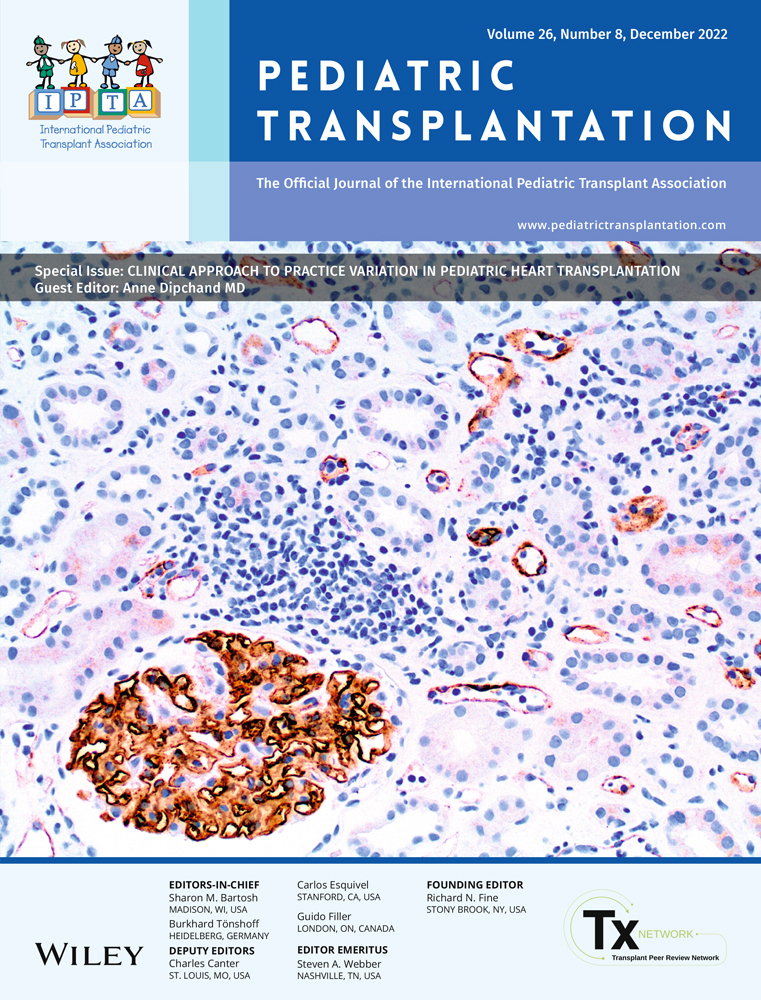Sleep-related breathing disorders and cardiometabolic risk factors in pediatric kidney transplant recipients
ClinicalTrials.gov Identifier: NCT01007994
Abstract
Background
SRBDs have been shown to increase the risk of cardiovascular disease, which is a significant cause of mortality in kidney transplant recipients. Few studies have investigated the association between SRBDs and cardiometabolic risk factors in pediatric kidney transplant recipients.
Methods
This was a cross-sectional study of pediatric kidney transplant recipients using baseline cardiometabolic data from a previous clinical trial (NCT01007994). Parents/guardians of pediatric kidney transplant recipients filled out 22-item PSQ. A score greater than 33% was defined as a diagnosis of a SRBD. Fisher's exact test, Mann–Whitney U test, and regressions were used to determine associations.
Results
Among the 58 transplant recipients enrolled, 14.80% (n = 8) of participants identified as Black and 40.7% (n = 22) were male. The median age was 13 (IQR 8.25, 17) years and median number of years post-transplant for participants was 2 (IQR 1, 4). The prevalence of SRBDs was 26% (n = 14). The presence of a SRBD was associated with abnormalities in multiple cardiometabolic risk factors including total cholesterol level (β = 23.63; 95% CI 3.58–43.67), LDL level (β = 24.94; 95% CI 6.37–43.50), triglyceride level (β = 54.62; 95% CI 8.74–100.50), and LVH (OR = 5.12; 95% CI 1.12–23.45) when adjusted for age, sex, and race.
Conclusions
Similar to associations reported in the general pediatric and general CKD populations, SRBD is associated with increased cardiometabolic risk in pediatric kidney transplant recipients.
CONFLICT OF INTEREST
The authors declare no conflicts of interest.
Open Research
DATA AVAILABILITY STATEMENT
Data are available through the corresponding author.




